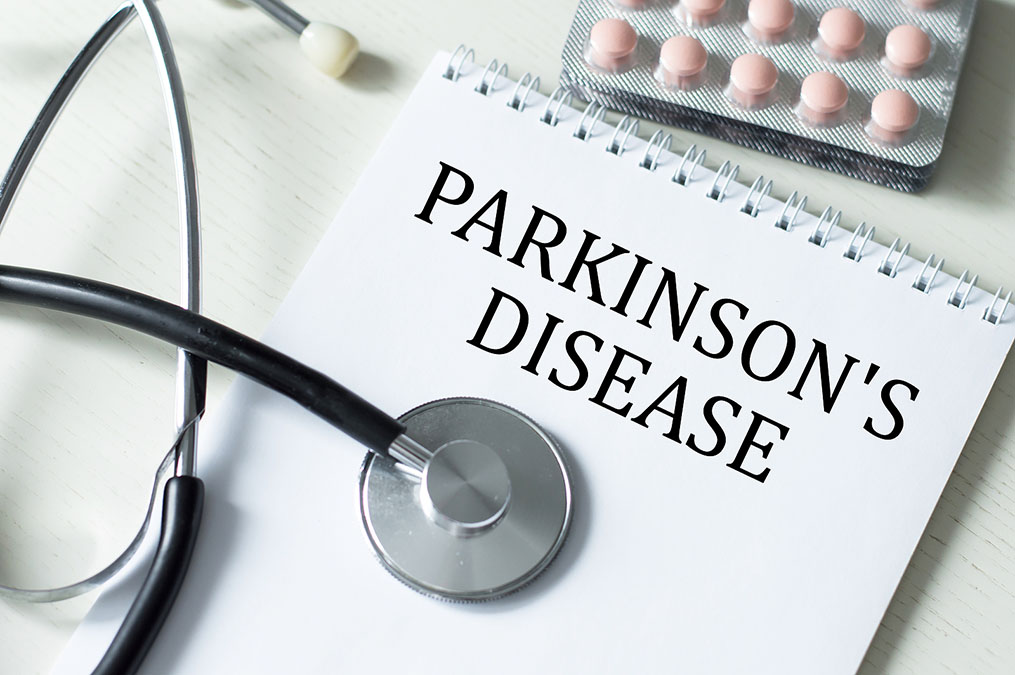 Most of the time, Parkinson’s disease is diagnosed too late.
Most of the time, Parkinson’s disease is diagnosed too late.
This is a big problem because the sooner you address it, the easier it is to stop it from progressing and the less damage it will cause.
A new study published in JAMA Neurology explains why this is so important.
Researchers discovered four easily identifiable early signs of Parkinson’s. In fact, you can check them on your own right now as you read this article.
Scientists from Virginia Commonwealth University in Richmond examined the Medicare-linked data of 6,674 people above age 64 who participated in the National Health and Aging Trends Study.
They split the participants into two groups: those who were diagnosed with Parkinson’s twice between 2011 and 2017 and who had been on Medicare for two years before their diagnoses, and those who were never diagnosed with Parkinson’s disease and had been on Medicare for at least two years.
All the participants completed questionnaires regarding their dexterity, eating, mobility, mood, pain, sleep, speech, strength, and vision.
The researchers compared the responses of those who were later diagnosed with Parkinson’s disease with those who remained healthy.
This is what they found:
1. Those with later Parkinson’s were 66% less likely to report being able to walk six blocks.
2. They were 70% less likely to be able to get up on their own from a kneeling position.
3. They were 64% less likely to be able to lift a heavy object above their heads.
4. They were more than twice as likely to report imbalance.
Most interestingly, these impairments were present within three years of their official diagnoses.
The scientists warned that these people would not be diagnosed with Parkinson’s disease when visiting a doctor, even though they seem to have early signs of the disease.
They added that we should recognize this early stage of Parkinson’s disease so that treatment could begin immediately.

 Overcoming IBD
Overcoming IBD Multiple Sclerosis
Multiple Sclerosis Banishing Bronchitis
Banishing Bronchitis Gum Disease Gone
Gum Disease Gone Overcoming Onychomycosis
Overcoming Onychomycosis Neuropathy No More
Neuropathy No More The Prostate Protocol
The Prostate Protocol Brain Booster
Brain Booster
 Ironbound
Ironbound
 Solution for Shingles
Solution for Shingles
 The Bone Density Solution
The Bone Density Solution
 The Ultimate Healing Protocol
The Ultimate Healing Protocol
 The Parkinson's Protocol
The Parkinson's Protocol
 The Chronic Kidney Disease Solution
The Chronic Kidney Disease Solution
 Overthrowing Anxiety
Overthrowing Anxiety The Fatty Liver Solution
The Fatty Liver Solution The Hypothyroidism Solution
The Hypothyroidism Solution
 The End of Gout
The End of Gout The Blood Pressure Program
The Blood Pressure Program
 The Oxigized Cholesterol Strategy
The Oxigized Cholesterol Strategy
 Stop Snoring And Sleep Apnea Program
Stop Snoring And Sleep Apnea Program
 The Arthritis Strategy
The Arthritis Strategy The Vertigo & Dizziness Program
The Vertigo & Dizziness Program The 3-Step Diabetes Strategy
The 3-Step Diabetes Strategy Hemorrhoids Healing Protocol
Hemorrhoids Healing Protocol The Erectile Dysfunction Master
The Erectile Dysfunction Master Weight Loss Breeze
Weight Loss Breeze The IBS Program
The IBS Program The Insomnia Program
The Insomnia Program The Migraine and Headache Program
The Migraine and Headache Program The Neck Pain Solution
The Neck Pain Solution The Menopause Solution
The Menopause Solution The Ejaculation Master
The Ejaculation Master The TMJ Solution
The TMJ Solution The Acid Reflux Solution
The Acid Reflux Solution The Fibromyalgia Solution
The Fibromyalgia Solution The Psoriasis Strategy
The Psoriasis Strategy